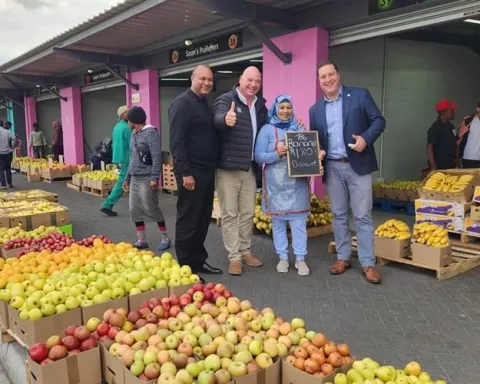Fish Mahlalela, South Africa’s Deputy Minister of Tourism, believes that the tourism sector can be used to empower women and youth in the country. Mahlalela highlights the importance of understanding tourists’ preferences and enhancing the attraction of areas like Nkomazi Local Municipality to contribute to local economic progress. He also emphasizes the need for collaboration between government and the private sector and the importance of programs like the Tourism Transformation Fund to cater to visitors’ needs. Overall, the speech reflects the South African government’s commitment to utilizing tourism to tackle socio-economic disparities.
How can tourism be used to empower women and youth in South Africa?
Fish Mahlalela, South Africa’s Deputy Minister of Tourism, highlights the potential of the tourism sector as a platform for encouraging the participation of overlooked groups. Mahlalela emphasizes the need to enhance the attraction of areas like Nkomazi Local Municipality and to understand tourists’ preferences to devise offerings that satisfy their desires. Government initiatives like the Tourism Transformation Fund and Market Access Support Programme play a crucial role in aiding tourism businesses to cater to visitors’ needs and contributing to local economic progress. The speech bears witness to the South African government’s commitment to utilizing tourism’s power to tackle socio-economic disparities.
Addressing Unemployment through Tourism
Fish Mahlalela, South Africa’s Deputy Minister of Tourism, recently had a leading role at the Tourism Imbizo, located in Nkomazi Local Municipality in Mpumalanga Province. The primary goal of the dialogue was to highlight existing opportunities and programs within the tourism sector, intended to aid women and youth. These groups are currently bearing the brunt of South Africa’s unemployment dilemma.
The tourism sector plays a pivotal role in the country’s national economy, fueling economic growth and generating jobs. In Mahlalela’s view, this sector’s strength positions it as an excellent platform for encouraging the participation of overlooked groups in primary economic activities. The minister further underscored the tourism sector’s potential in mitigating gender inequality, in alignment with Sustainable Development Goal five (5).
Exploiting Geographical Advantage for Economic Growth
A significant part of Mahlalela’s speech was dedicated to the geographical benefits of Nkomazi Local Municipality. Positioned on the verge of two nations – Eswatini and Mozambique, the municipality presents an irresistible opportunity for global tourists. Visitors can traverse various countries concurrently, discovering varied attractions such as Matsamo Cultural Village, the Big Five at the Kruger National Park, and the shopping scene in Malelane. Mahlalela perceives this as a chance for tourists to expend more time and resources, propelling local economies.
Mahlalela challenged both local municipalities and the national government to shift their attention towards enhancing the attraction of these areas, both domestically and internationally. He stressed the necessity of upgrading existing infrastructure like telecommunications, roads, accommodations, hospitals, shopping centers, national parks, and cultural villages to meet the needs of tourists and local residents.
Understanding Tourist Preferences and Ensuring Supply Base
The deputy minister also emphasized the value of comprehending tourists’ preferences. Many tourists aim to mix major destinations like the Kruger National Park with other experiences, including cultural sites, golfing, and casino experiences. By understanding these preferences, the tourism sector can devise offerings that satisfy these desires, thereby elevating tourism income.
In his talk, Mahlalela acknowledged government initiatives’ crucial role in aiding tourism businesses to cater to visitors’ needs. Programs such as the Tourism Transformation Fund (TTF), the Green Tourism Incentive Programme, and the Market Access Support Programme are most effective when paired with other interventions. These may include planning tourism projects in the municipalities’ integrated development plans. These initiatives can make local communities more inviting to visitors, contributing to local economic progress.
Mahlalela also acknowledged the necessity to safeguard and revitalize the tourism economy’s supply base. This tactic assures that when demand reverts to pre-pandemic levels, the supply side, including airports, accommodation, and amenities, can keep pace with the expected demand.
Government-Private Sector Collaboration and Imbizo’s Role
The deputy minister underscored the importance of collaboration between government and private sector. Security of tenure is a major concern for accommodation establishments, airports, and other capital-intensive amenities. Long-term leases on state-owned land can unlock funding from development finance institutions and commercial banks, spurring private sector investment.
Lastly, the minister highlighted the role of Imbizo as a feedback mechanism, keeping people updated about the government’s plans to tackle socio-economic difficulties in a sustainable manner. He pledged to take into account all issues discussed during the dialogue, assuring government intervention where necessary.
The speech bears witness to the South African government’s commitment to utilizing tourism’s power to tackle socio-economic disparities, especially among women and the youth. It’s a call to action for all stakeholders – government, private sector, and community members – to collaborate towards a more inclusive and prosperous future.
What was the goal of the Tourism Imbizo led by Fish Mahlalela?
The Tourism Imbizo led by Fish Mahlalela aimed to highlight existing opportunities and programs within the tourism sector to aid women and youth who are currently experiencing high unemployment rates.
How does the tourism sector contribute to South Africa’s national economy?
The tourism sector plays a pivotal role in fueling economic growth and generating jobs in South Africa.
How can geographical advantages be exploited for economic growth in South Africa?
Fish Mahlalela emphasized the need to upgrade existing infrastructure such as telecommunications, roads, accommodations, hospitals, shopping centers, national parks, and cultural villages to meet the needs of tourists and local residents.
What is the importance of understanding tourist preferences in the tourism sector?
Understanding tourist preferences is crucial in devising offerings that satisfy their desires, thereby elevating tourism income.
Why is collaboration between government and the private sector important in the tourism sector?
Collaboration between government and the private sector is important in ensuring security of tenure, unlocking funding from development finance institutions and commercial banks, and spurring private sector investment.
What is the role of Imbizo in tackling socio-economic difficulties in South Africa?
Imbizo serves as a feedback mechanism, keeping people updated about the government’s plans to tackle socio-economic difficulties in a sustainable manner. Fish Mahlalela pledged to take into account all issues discussed during the dialogue, assuring government intervention where necessary.








